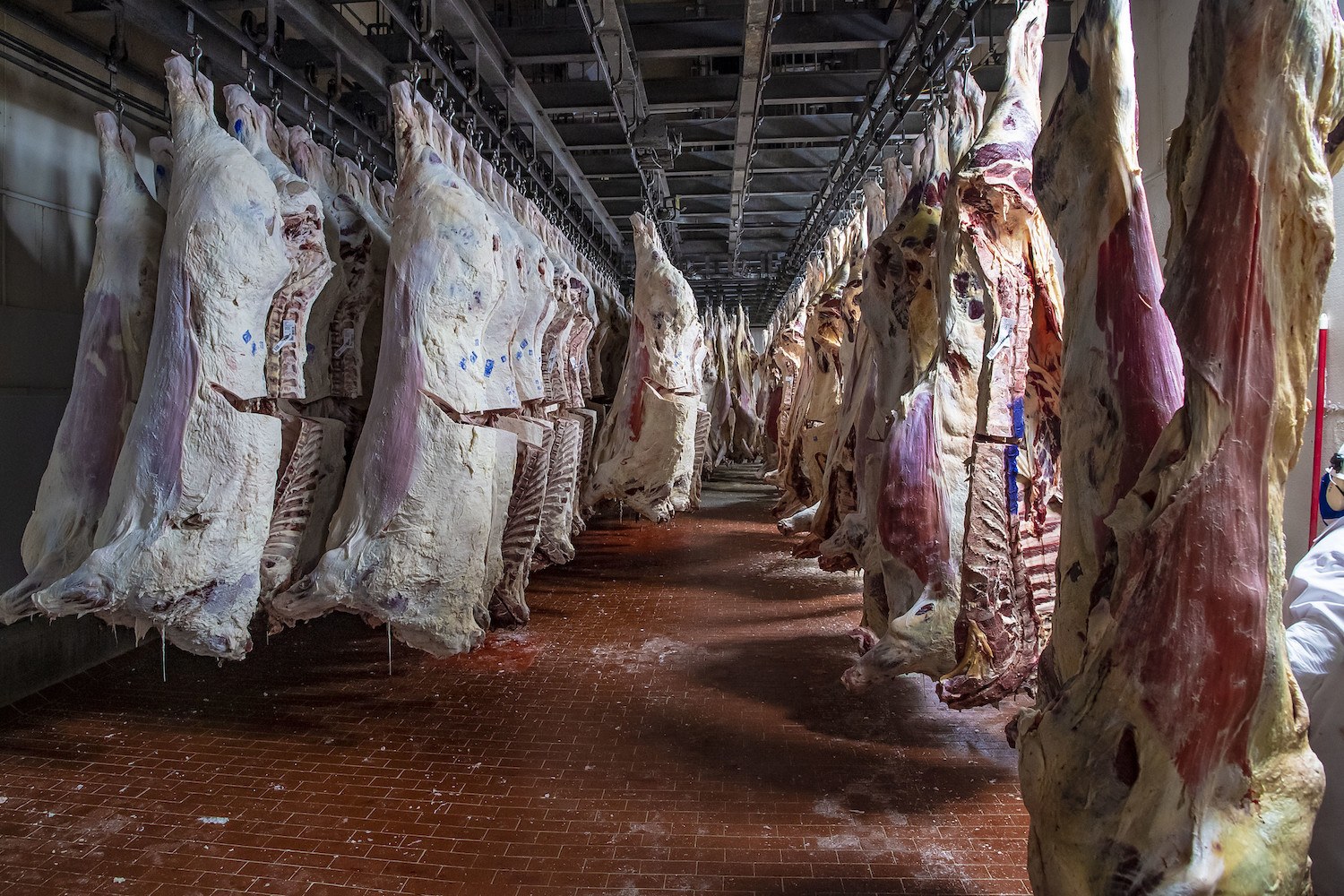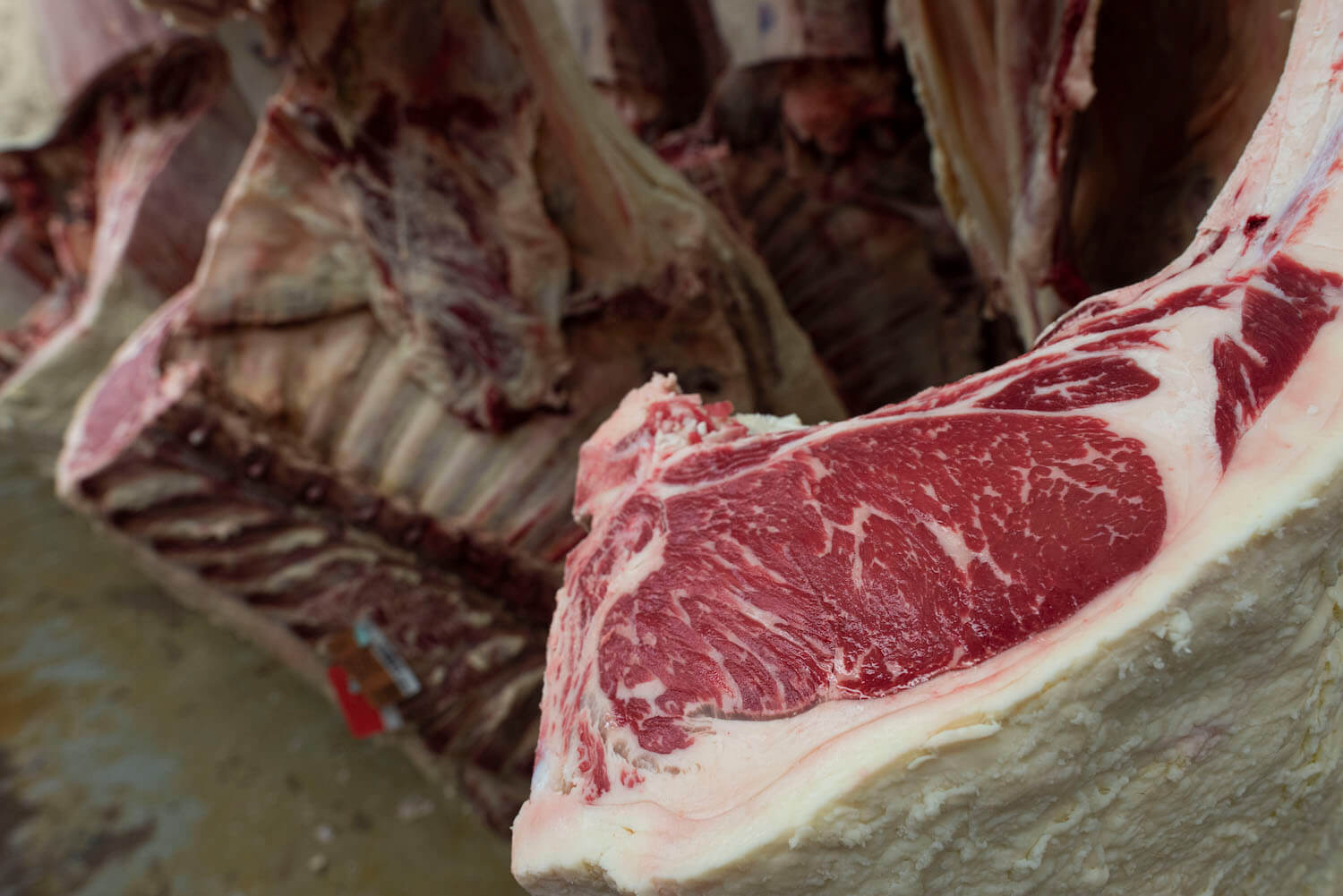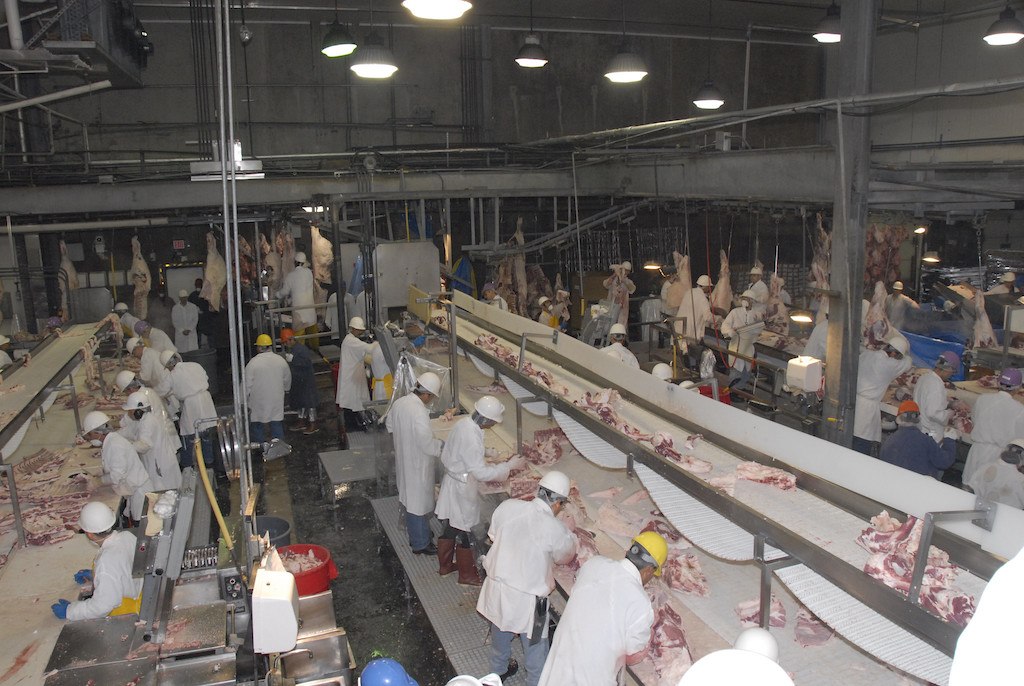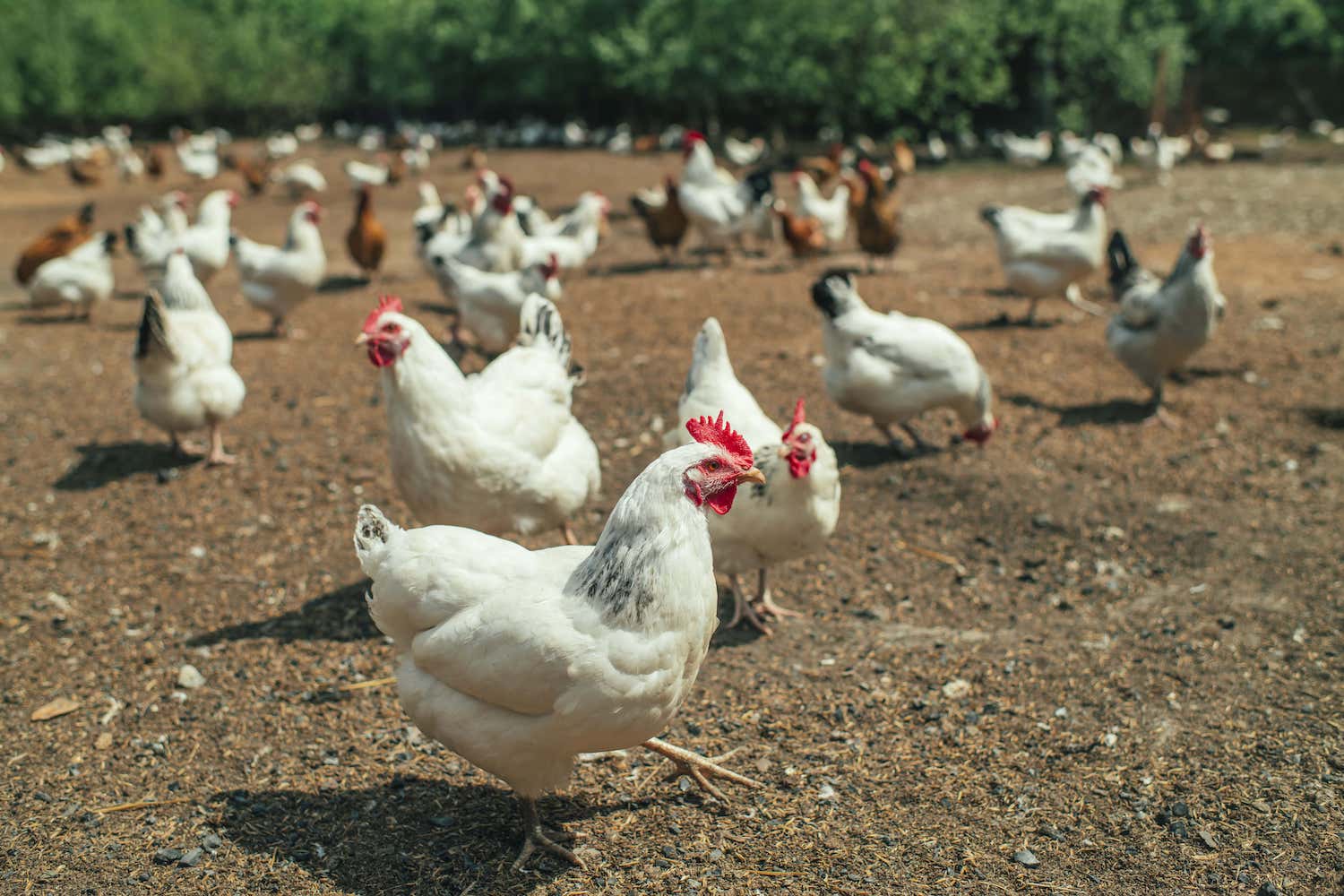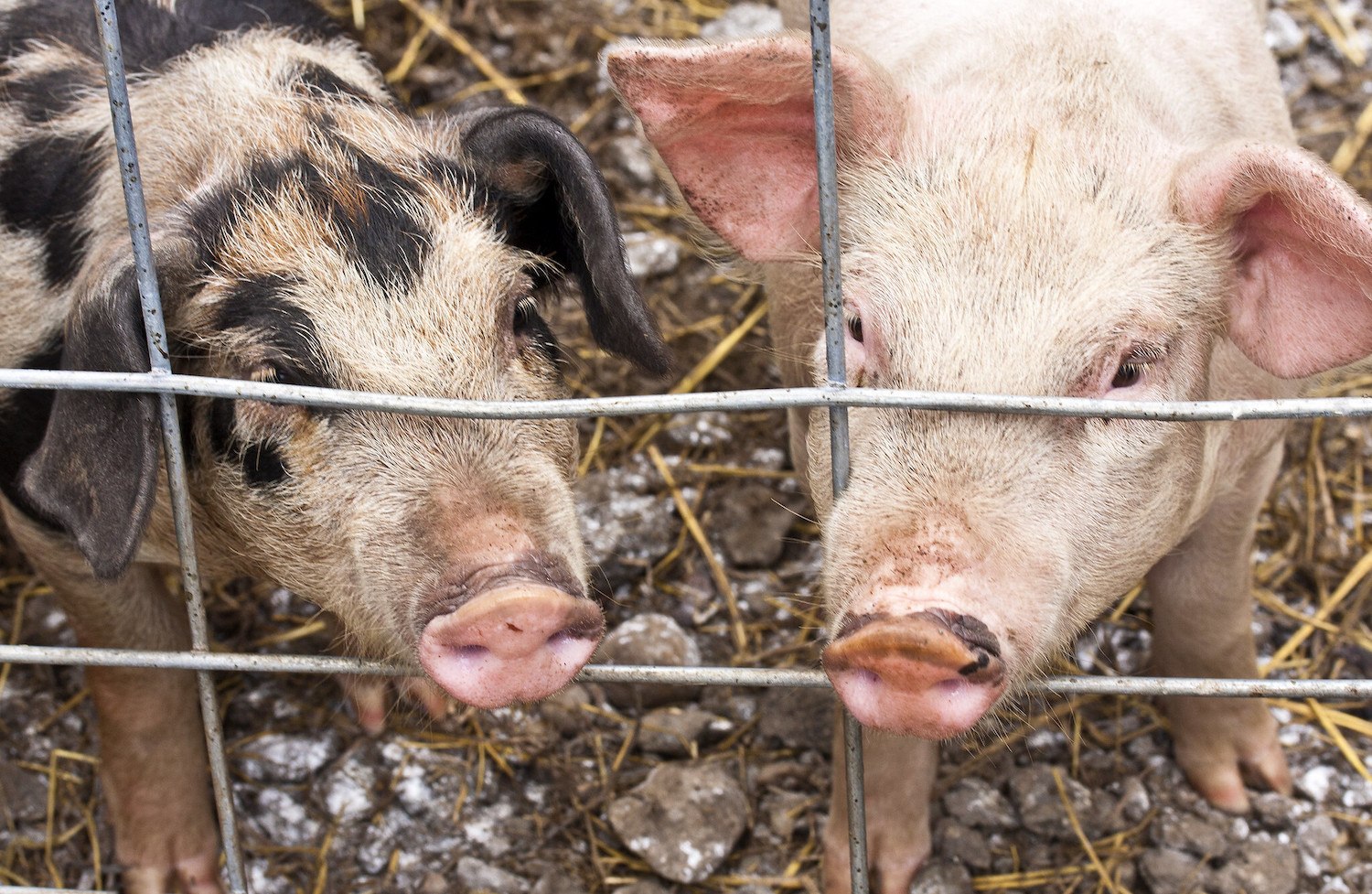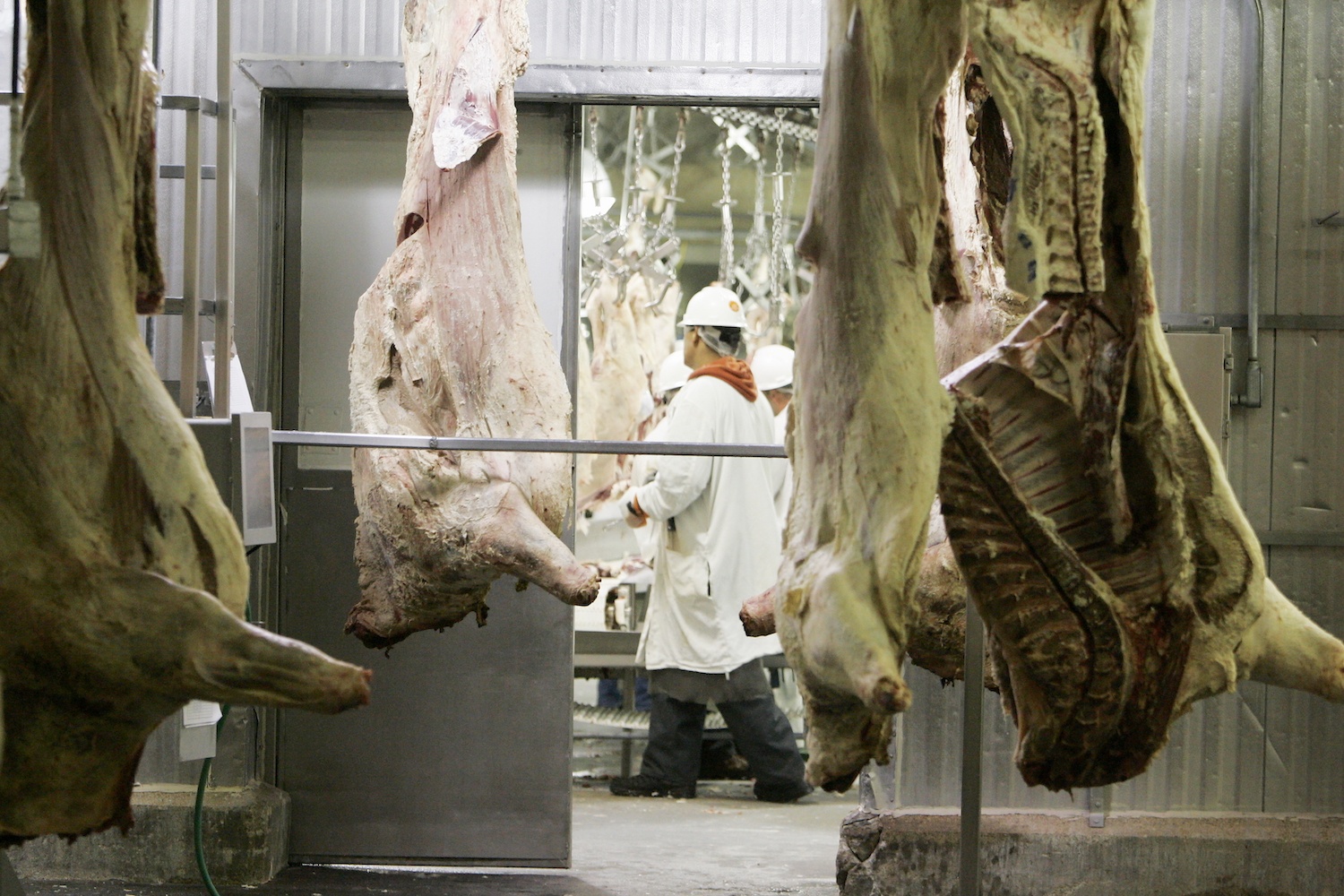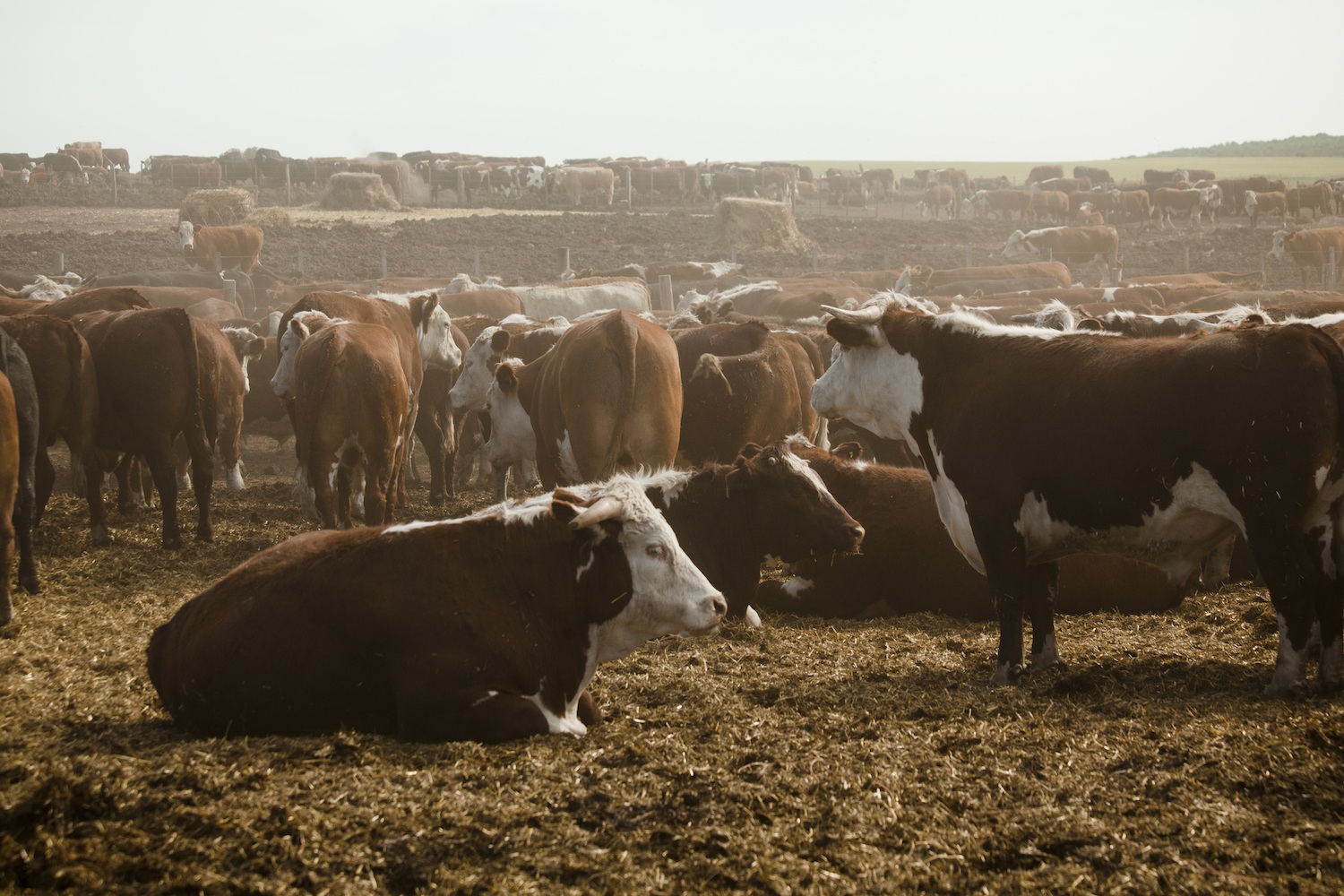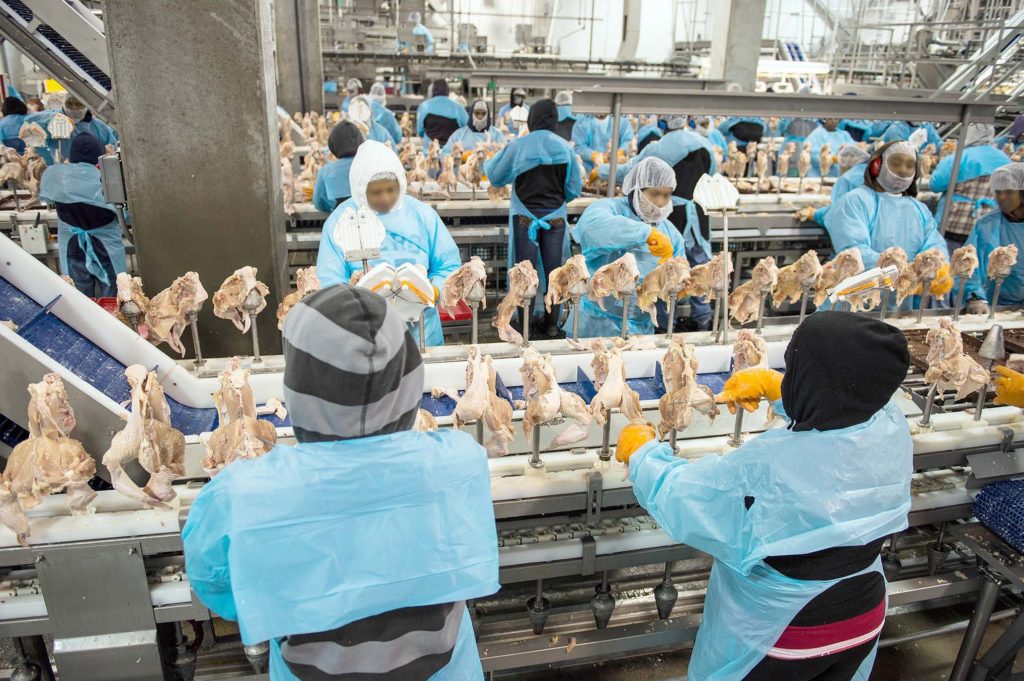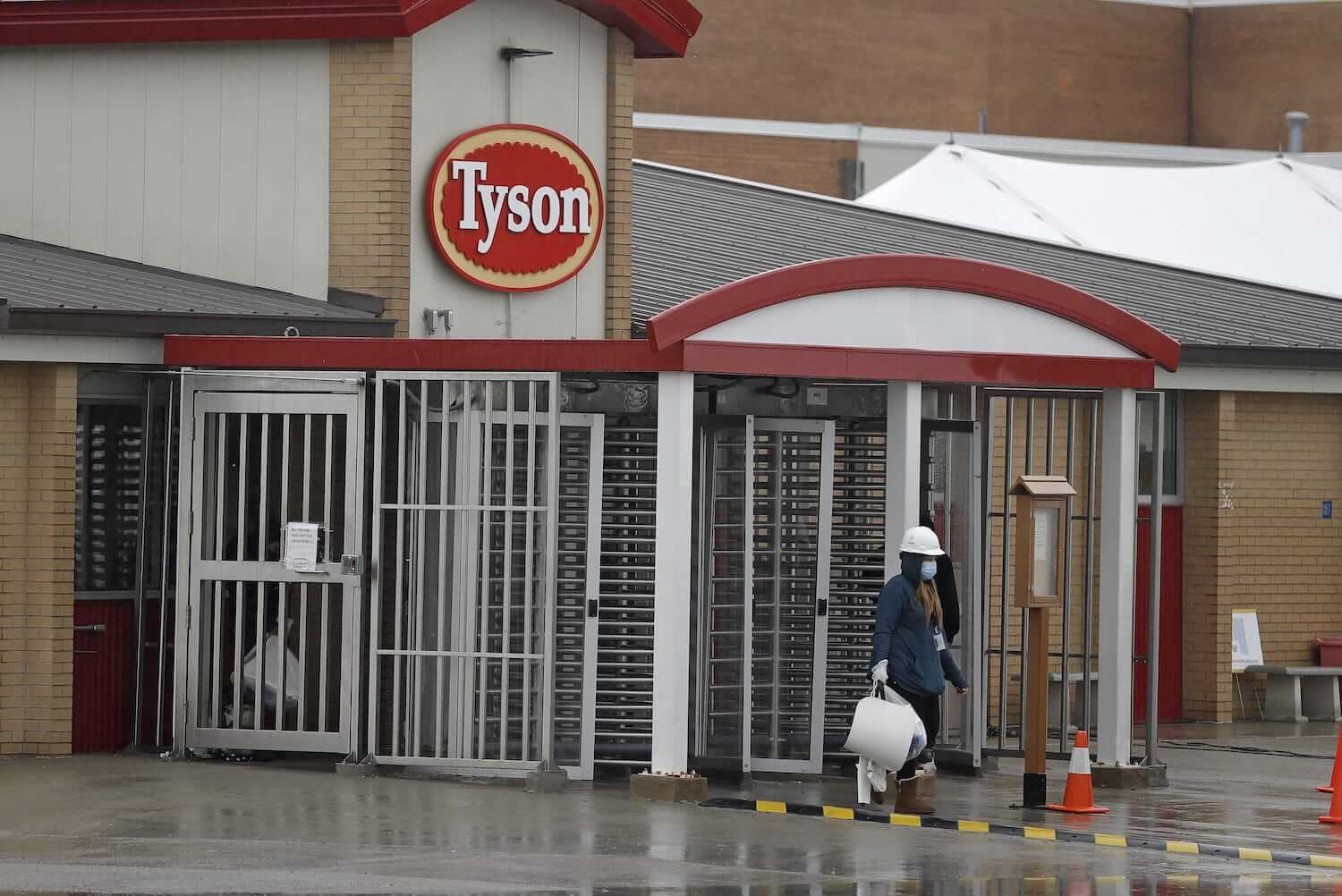Could America’s small- to mid-sized meat processors pick up the lost capacity when large packers have to close? They might. But federal meat-inspection laws and regulations are standing in the way.
As Covid-19 ravages the workplaces of America’s largest meat processors, many of these giant facilities, which supply the vast majority of the nation’s beef, pork, and chicken, have shut down or reduced capacity. Securing some protection from liability concerns—however unspecified—via President Trump’s recent executive order to remain open during this pandemic, the country’s big processors are nonetheless coping with myriad existential threats to their business model. Employees aren’t showing up. Livestock farmers are culling their herds. Productivity is down.
Unlike their larger competitors, though, many smaller meat-processing plants in the United States report brisk business. These small- and mid-sized processors face some of the same workplace challenges as the big processors. But the real obstacle that’s preventing ranchers and farmers that utilize these facilities from supplying more meat to more Americans is an outdated federal law that props up the large processors while preventing local meat producers from selling steaks, roasts, and other cuts of meat to consumers in grocery stores, at farmers’ markets, and elsewhere in their communities.
The challenges of operating a large meat processing plant during a pandemic have become staggeringly obvious: asking hundreds of employees to stand elbow-to-elbow while working at breakneck speed is an ideal way to transmit Covid-19. Thousands of employees who work in those facilities—which have become epicenters of the pandemic—have tested positive for the disease. The United Food and Commercial Workers Union (UFCW), the largest meatpacking union, with more than 250,000 members, reported on April 28 that at least 20 plant employees have died of the virus. But they aren’t the only ones being struck down. More than 100 of the USDA’s Food Safety & Inspection Service (FSIS) staff have tested positive for Covid19 so far. The union representing USDA inspectors says more than one out of every six inspectors is sick or otherwise unable to work. Two inspectors have died.
“Small producers and processors are vital to keep our food supply safe and open for consumers.”
In spite of President Trump’s executive order, the nation’s largest meat processors are still in real danger of being unable to feed anyone in America. But many smaller competitors are ready to pick up the slack.
“Small producers and processors are vital to keep our food supply safe and open for consumers,” said Lisa Poncia of Stemple Creek Ranch in California. She said business is brisk in part because consumers don’t want to shop at grocers, and those who do make it to their grocer often find meat shelves empty.
“Local food demand is through the roof right now,” said Greg Gunthorp, a mid-sized rancher and processor based in Indiana.
“Small plants might be able to pick up some of the lost capacity, with many being more ideally isolated in rural communities.”
But can the local food system feed us all? For meat eaters, it may have to, for now at least.
“If the virus affects the big plants, they may have to cut capacity or even close,” predicted Kansas-based, mid-sized rancher and processor Mike Callicrate, weeks ago, at a time when only one or two big plants had so far been forced to close. “Small plants might be able to pick up some of the lost capacity, with many being more ideally isolated in rural communities.”
They might. But federal meat-inspection laws and regulations are standing in the way.
The misguided Wholesome Meat Act
Since it took effect in the years after Congress passed the Wholesome Meat Act of 1967, USDA has required that cows, pigs, sheep, and goats whose meat will be sold commercially across state lines be slaughtered in—and their meat processed in—agency-inspected facilities. Meanwhile, meat sold commercially within a state must be processed in those USDA-inspected facilities or in state facilities that have requirements “equal to” those in place at USDA-inspected facilities. USDA-inspected “facilities cannot conduct slaughter operations if FSIS inspection personnel are not present and inspecting each carcass,” FSIS details.
While Congress intended for the Wholesome Meat Act to create a uniform national system of inspection, in reality it created three parallel, separate, disjointed, and unequal systems. Ranchers whose animals and meat are processed at a USDA-inspected facility can sell their products legally anywhere in the country. Ranchers who utilize a state-inspected facility enforcing “equal to” requirements can sell their products anywhere in that state but—with a few exceptions—may not sell their meat across state lines. The smallest ranchers typically have their animals and meat processed at a custom facility. Those ranchers may only sell meat to a person who purchased a share in that animal while it was still alive. They may not sell the meat across state lines nor to the general public, grocers, restaurants, or at farmers’ markets.
As I write in my book Biting the Hands that Feed Us: How Fewer, Smarter Laws Would Make Our Food System More Sustainable, USDA and Congress have long understood this scheme harms smaller ranchers and processors and has spurred massive industry consolidation. A 1971 congressional study on the early impact of the Wholesome Meat Act found many smaller meat producers “fear Uncle Sam is driving them out of business for misguided reasons.”
Critics argue that USDA’s emergency measures to date appear, as usual, to favor larger producers and processors.
As the Covid-19 pandemic underscores, those “misguided reasons” are myriad. In speaking with ranchers, farmers, and people who work in and support small- and mid-sized meat processing, I heard criticisms that USDA’s handling of meat processing during the pandemic fall into two basic categories: favoritism and inflexibility.
First, critics argue that USDA’s emergency measures to date appear, as usual, to favor larger producers and processors. For example, the agency has granted waivers to some large producers, allowing them to increase the speed at which the processing lines operate in their facilities. Plants used by small- and mid-sized farmers and ranchers don’t have the technology and infrastructure in place to make them worry about speed limits.
Another way USDA favors larger producers and processors occurs when the agency steps in to buy meat to aid livestock owners who’ve been hit by low prices, supply gluts, and other factors. Agency buy-ups don’t generally benefit small- or mid-sized farmers and ranchers. Sure enough, USDA has in recent weeks announced the agency would purchase more than a billion dollars of meat and dairy products from large producers in the coming months.
Behind this story
The Counter asked a variety of ranchers, farmers, processors, and advocates what lawmakers and/or government agencies could do to help small producers meet demand during the Covid-19 pandemic. Here are a few of the best responses, which we’ve edited lightly and are presenting anonymously:
1) Allow meat that’s inspected by a state to be sold across state lines—just like imported meat is allowed to do.
2) Repeal, suspend, or amend the Wholesome Meat Act to allow meat processed in a custom plant to be sold in grocery stores, at farmers markets, and in other retail locations within the state where the meat originated.
3) Ensure that no matter what, USDA inspectors are available to increase capacity at existing processing plants (both for harvest and for cut and wrap).
4) Expand the scope of what is permitted for on-farm harvest and fund resources to make this happen.
5) Get CARES ACT funding out to small and mid-scale farmers & ranchers immediately. Thus far, USDA has not opened up that funding. USDA needs to get its act in gear.
6) When the federal government purchases food for food banks, Indian Reservations, and strategic reserves, it should not all be just from the largest commodity growers. Purchase from small and mid-scale producers as well.
The second broad category of criticisms pertains to USDA’s perceived inflexibility at a time when circumstances would seem to call for a lighter approach.
Mike Callicrate, who has a ranch in Kansas and a retail operation in Colorado, said he wants to expand his plant hours to allow his employees to slow down, better maintain social distancing, take more breaks, and be more productive. The expanded hours would also require USDA inspectors to work overtime. Generally, FSIS inspectors work at plants at taxpayer expense up to 40 hours each week, but the facilities must reimburse the agency for any inspector overtime worked at their plant. According to emails I reviewed, when Callicrate reached out to FSIS and asked if the agency would be willing to suspend overtime payments because of the pandemic, he was rebuffed.
Another area where critics say USDA has proven inflexible centers on preventative Covid-19 testing at meat-processing plants. Callicrate implemented a “symptom check plan” for every plant shift, in which workers undergo a temperature check and sign a paper acknowledging they’ve been tested. When Callicrate asked one USDA inspector at his plant to take the same preventative steps, Callicrate told me the inspector agreed to be tested but balked at confirming that in writing. Why? In March, FSIS sent an email to all of its employees letting them know that plants may ask inspectors to be tested as a condition of entry but ordered them not to put anything in writing. “USDA employees will only respond to questions orally and will not sign any attestations or submit any written questionnaires,” the email read.
FSIS inspectors working during the Covid-19 outbreak, through no fault of their own, may now be an ideal disease vector.
While that email noted any facility may bar entry to an inspector who says they are sick or have been exposed to others who are, barring an inspector—without another inspector readily available—would mean a facility can’t legally operate. “No, the establishment would not be able to continue operating if an FSIS inspector is rejected,” an FSIS spokesman told me. “By law these establishments cannot produce food unless they’re having FSIS inspection. To date, there have been no instances where FSIS hasn’t been able to provide coverage for facilities to keep operating.”
The spokesman admitted that could change. Indeed, as part of USDA’s Covid-19 “playbook,” the agency acknowledges “the risk of exposure to our employees could significantly impact USDA’s ability to conduct its core programs and essential operations.”
Unfortunately, the agency’s own inspection regime heightens that risk. While many inspectors work only at one large, cramped plant—with, as we’ve seen, viral transmission one result—many smaller USDA-inspected plants are visited by FSIS inspectors who often travel between facilities. Whether or not that approach is a good idea on the very best days, FSIS inspectors working during the Covid-19 outbreak, through no fault of their own, may now be an ideal disease vector.
“Having inspectors go to significantly more plants in a day could make this a lot worse.”
“Having inspectors go to significantly more plants in a day could make this a lot worse,” processor Greg Gunthorp said, days before he was informed by USDA that an inspector who’d worked at his plant the week before had been diagnosed with Covid-19. Days later, an FSIS inspector based out of the department’s Chicago office died from the disease. An FSIS spokesman said he’s “not sure” whether the inspector who died is the same one who had traveled to Gunthorp’s plant.
As a lengthy forthcoming piece for The Counter will detail, the Covid-19 pandemic didn’t cause the massive problems we’re seeing in the meat sector. It merely laid them bare. Those problems will outlive this crisis. But as dire as things look today, some are hopeful about future reforms.
“I keep thinking in the back of my mind about positives that can come out of this,” Gunthorp said, injecting an unanticipated but welcome bit of optimism into discussions of the current crisis. “And I think consumers are going to listen to us about the importance of local and regional food systems and the need to process more of our food locally.”
